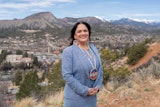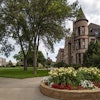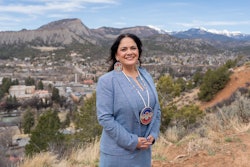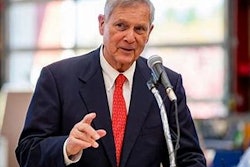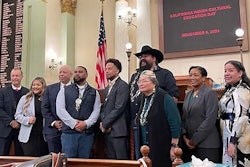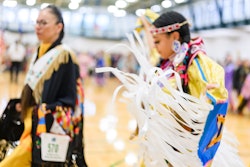Richard B. Williams, president of the American Indian College Fund and author of the “Last Word” in this edition, expresses what many Americans Indian in this country feel — that they are ignored, if not invisible in mainstream American society. “American Indians are still here,” Williams says, citing a U.S. Department of Education report that, while highlighting the needs of Black, Hispanic and low-income communities, fails to address those of American Indians.
Williams’ observation is a common one among American Indians, and several scholars and students are trying to raise the profile of this population, while at the same time, educating Americans about the Native experience, both past and present.
One of those scholars is the subject of our Spectrum profile, Dr. Alyssa Mt. Pleasant, who joined the Yale faculty in 2006 and is the first person to teach courses specifically designated as American Indian history at the university. She says that understanding American Indian history is integral to understanding the history of the United States. “Our school system has done a disservice to American citizens by not sharing more information about American Indian history,” she says.
The University of Tulsa’s College of Law, along with several other law schools, is training future lawyers so that they will not disservice their American Indian clients. Diverse correspondent Garry Boulard profiles the growing popularity of Native law programs. Native American law certificate programs provide students with the expertise in Indian and tribal law. “This should be an important area of study because every individual tribe also has its own court system, constitution and ordinances,” says Robert Anderson, associate professor of law and the director of the Native American Law Center at the University of Washington School of Law, adding that some tribes even have their own bar exams. Read more about this trend in “Broadening the Legal Landscape.”
Our cover story is a fascinating one. In “Seeking Restorative Justice,” contributing editor Mary Annette Pember profiles Navajo Technical College’s Dr. Eulynda J. Toledo, who founded the Boarding School Healing Project. Dating back to the late 1800s, American Indian children were sent to boarding schools, which were run by religious organizations, others by the Bureau of Indian Affairs. The conditions at many of the boarding schools involved abuse and forced acculturation. Toledo and her colleagues are seeking to link some of the current social ills that plague Native Americans with the generations of abuse experienced at the boarding schools. She also hopes the project will bring healing to those who may have experienced abuses. “Healing requires us to restore ourselves, emotionally and spiritually, and work towards justice,” she says.
Other articles in this edition: Mary Annette reports on the Newark Earthworks in central Ohio, thought to be the world’s largest ancient mound site, which was built nearly 2,000 years ago by the Hopewell Indians. Dorothy Givens Terry in “Staying Afloat in New Orleans,” reports on the continued literacy efforts in the city post-Katrina; and Reginald Stuart profiles Meharry Medical College’s new president, Dr. Wayne Riley.
–Hilary Hurd Anyaso,
Editor
Click here to post a comment
© Copyright 2005 by DiverseEducation.com
